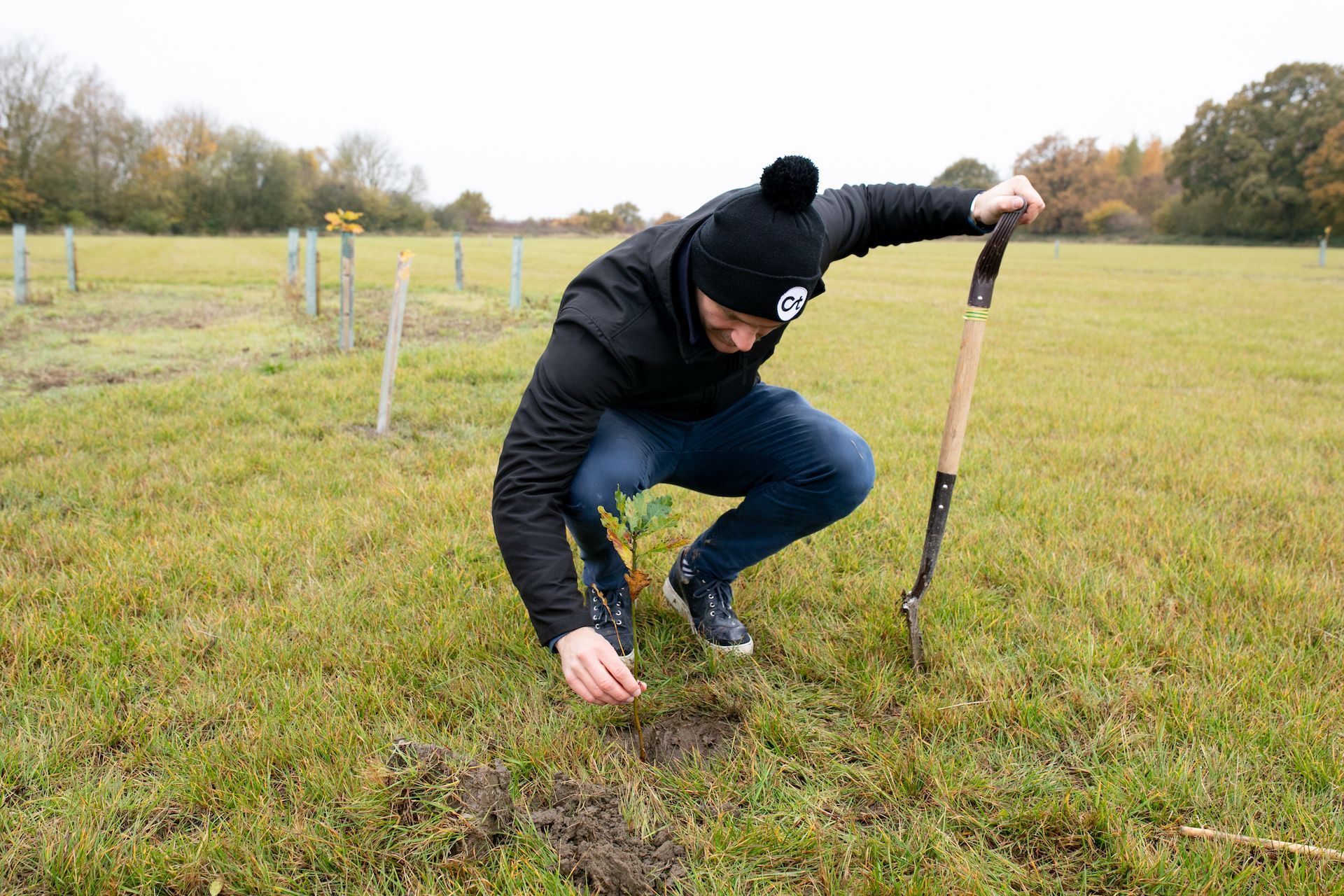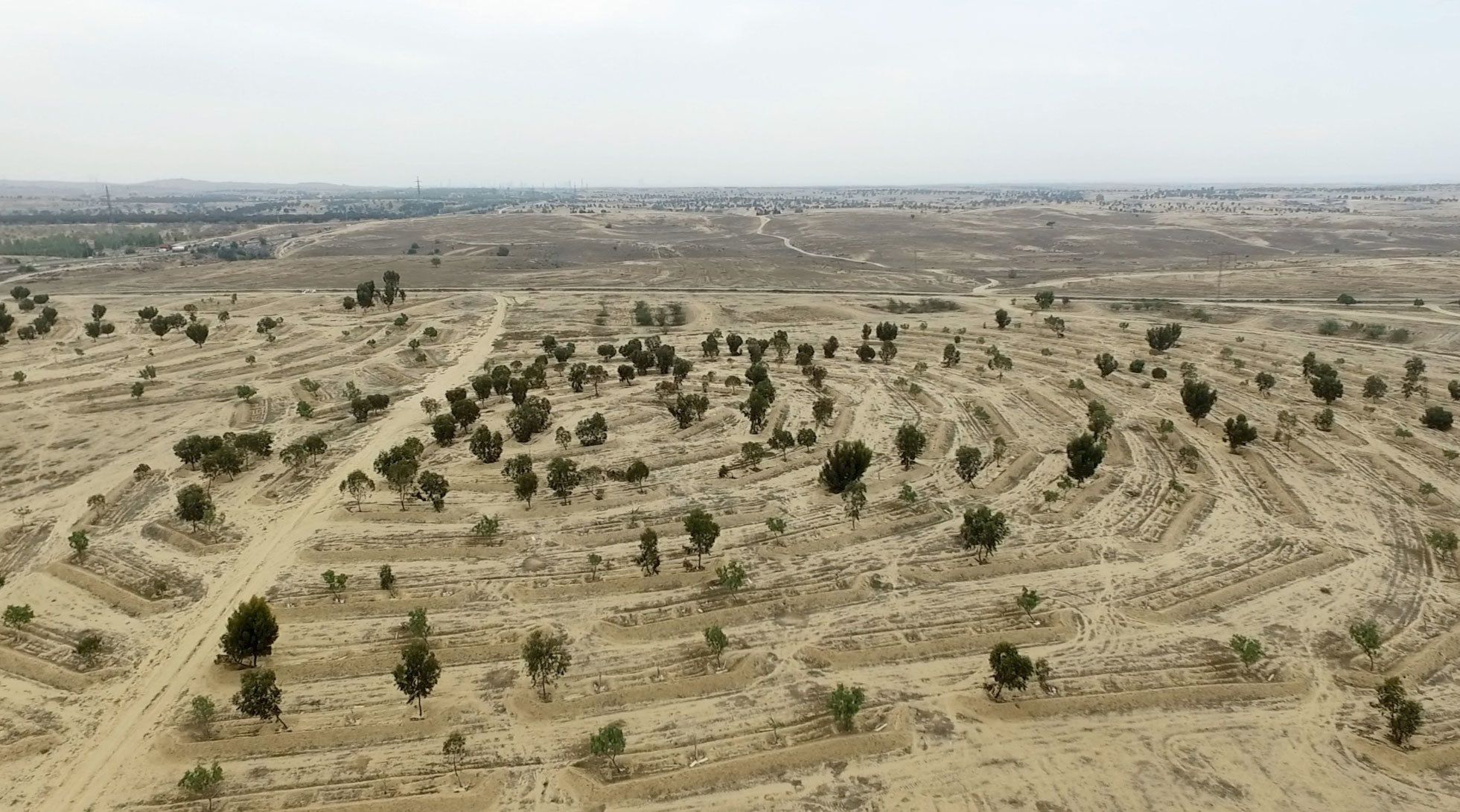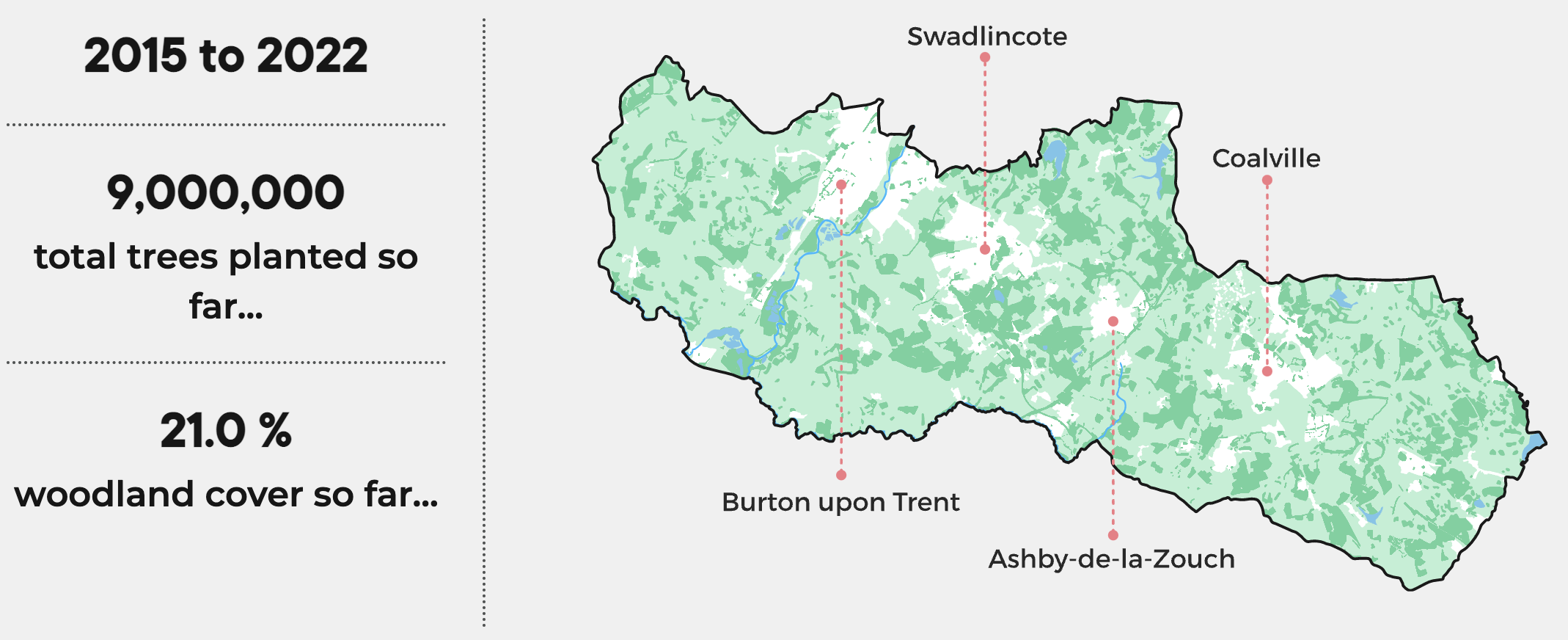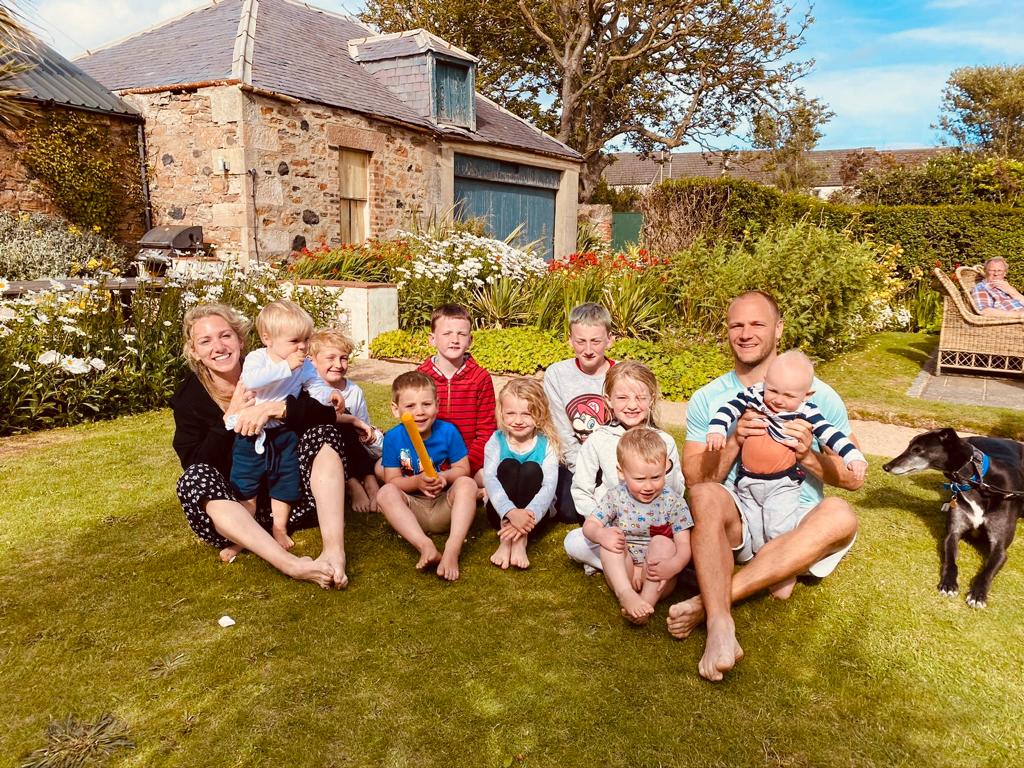Trees - Simple but Complex
I have felt for a long time that in the future capitalism must be more balanced and aligned with long term thinking. We genuinely believe we are building a great company and platform in Citizen Ticket, one that can scale and be deeply important for event organisers worldwide.

In the early days of Citizen Ticket, my fellow co-founders Phil & Colin and I were having a discussion about our industry (event ticketing & bookings) - and more specifically - our market leader, Live Nation. At the time (around 2019) they were recording around $11.5 billion in annual revenue.
To us, as young entrepreneurs, this was almost a mind boggling but meaningless number. At that point we had one employee and were barely making any revenue. But in one of the more philosophical pub session debates, we did ask ourselves; other than putting on a ton of events & gigs, selling piles of tickets and returning shareholder value, what ‘good’ did this company do for the wider community or planet? We struggled to answer this, but in that moment of clarity (or more appropriately - naivety), we said that if we were to ever run a big and important company we would bake some mechanism into it that was totally outside of our industry, outside of our personal interest and shareholders gain, but something we could be proud of.
Just, in essence, a good thing to do.
This was around the time we created our ‘trees initiative’. In a simple sentence - a portion of the income from each ticket sold through Citizen Ticket goes towards planting trees in the UK. At the time of writing, Citizen Ticket has planted 1,697 trees in the UK.
Now, planting a tree is the perfect metaphor for something simple turning into something really complex and that is exactly what happened to me from the start of this initiative. I am one who is partial to falling down a Wikipedia hole and emerging after two days with no answer to my original question or even remembering what the original question was, but absolutely every fact on something totally unrelated.
Learning about trees became like an itch that had to be scratched and I became obsessed with every aspect. Now we are seeing more and more people and businesses developing an interest in tree planting - and for good reason. The climate is noticeably getting warmer and sometimes the news is actually pretty scary in relation to the effects of global warming. We are at a historical turning point and one that will define our generation absolutely.
In my learning, there is one thing I can categorically and with confidence say: there is no one solution to the climate crisis. It is infinitely complex and certainly isn’t going to be solved in a (probably poorly read) blog post. But I can share some of my own (possibly contradictory) opinions and observations on the modern approach to tree planting.
For simplicity and a quick way to get a feel for the bigger picture, here are some ‘back of a fag packet’ numbers.
- In the Jurassic era, long before humans and man made carbon emissions, planet Earth had coverage of approximately 6 trillion trees. Today, there are approximately 3 trillion trees.
- With the way humans, urban dwellings and infrastructure have expanded, there is now only room on Earth now for 1 trillion trees to be planted, so until Elon Musk starts planting on Mars, Earth tops out at 4 trillion trees.
- Hypothetically if all of these trees were somehow planted (unfathomable task) this would only result in capturing around one quarter of human-created carbon emissions.
- In conclusion, tree planting cannot be the only solution.
Things get more complex. In lots of cases, tree planting can actually be bad for the environment. Yes, you heard that right - BAD. If the location is wrong it can cause all kinds of unknown consequences like the soil not adopting the sapling and it dying, animals destroying them before maturity and even the trees depleting natural ground water. When we first came up with this initiative I thought - “Easy, we buy some trees online, find a field and stick' em in the ground, done deal”. If only.
There are many examples of tree planting gone wrong at scale. A few that spring to mind are The Yatir Forest in Israel where 4 million trees were planted arguably with negative effects or in Turkey where a record breaking 11 million trees were planted across the country but it is now estimated that 90% have died. These prove that there is more to it than meets the eye.

Then there is the problem of non-native trees, or ‘monocultures’. These are single species planted on mass. In the UK, everyone will be familiar with Sitka Spruce. These are the dense rows of Christmas trees. Packed together, they are baron, dark forest floors with trees planted a meter away from each other, only to be felled every 10-15 years or so for timber. I tend to think of these more like crops to be harvested rather than trees. For carbon sequestration to be effective you need diverse ecosystems, not just trees. There is a murky line for those claiming to plant trees in the name of the environment, but are actually planting monocultures for primarily commercial reasons.
Coming back to our Trees Initiative. We spent a lot of time choosing our partner in the National Forest to make sure our tree planting efforts were being executed properly. With more sentiment pouring into the space and with lots of brands wanting a modern twist or punch line to their marketing, there is unquestionably more and more ‘greenwashing’ out there. The other day I found an organisation who were claiming to plant a tree for 0.23p. Anyone who vaguely understands the economics of planting can tell you this is impossible.
After working closely with The National Forest for a couple of years now, I've discovered that at times it would be easy to ‘take the money’ but it's much harder to diligently and responsibly get the trees into the ground.
The work of the National Forest is pretty incredible to be honest, seeing how regenerative their efforts have been on an area of countryside that was ravaged during the industrial revolution and the effect it is having on a 200 square mile area is amazing and shows what we can collectively achieve when done properly.

Ok so we get all the problems, but we want to hear some solutions…
As someone who runs a business, one thing I (vaguely) understand is the importance of getting incentives correct. Business and economics are largely run on the basic principles of incentivising people and then seeing the consequences of the action. Incentives are powerful things and, as the famous Charlie Munger said, “Show me the incentives and I’ll show you the outcomes”.
In the world of tree planting these incentives in my view are totally wrong. It seems like in some cases there are more incentives to cut down old forest to plant new forest because it pays more. Take the example of Costa Rica, where farmers get $125 per year for a hectare of planted forest, but only get $39 per year for protecting existing forest. This seems bonkers.
It has been pretty well documented that in most cases ‘doing nothing’ with land or ‘re-wilding’ may actually be more effective than intensive planting efforts. Nature is far more effective than we are when left to its own devices. The problem I see is that all the funding is driven by targets and measurable metrics. How many trees, over what period, equates to what projected carbon sequestration would be a common analyst's line of thinking.
This in turn leads to large scale and largely inconsiderate planting of (usually) monocultures. There are some pretty cool re-wilding projects going on in the UK and further afield. Re-wilding is probably quite misunderstood as people rightly argue that farming is important. We need to feed everyone and we can’t just let nature take back every field. All this is all true, but if you ask yourself how much weed-infested hill country there is out there that can’t be farmed in the first place and why it isn’t being more intelligently used to support diverse ecosystems?
If policy makers changed the incentives so that natural mixed species 'medieval style’ forests and re-wilding projects became more profitable to own and run than new plantations then it might just shift things in the right direction. I get the bizarre nature of this argument - humans are so proactive and everyone can get behind busying themselves by putting trees in the ground and shouting about it, but protecting natural woodland and doing basically nothing to swathes of land over a long period of time sounds boring (and is). But it may well be more effective.
It is also difficult to measure the success of these projects. The process should be measured not in decades but hundreds of years and it must start somewhere (now). I have felt for a long time that in the future capitalism must be more balanced and aligned with long term thinking. We genuinely believe we are building a great company and platform in Citizen Ticket, one that can scale and be deeply important for event organisers worldwide. But if it scales, it must benefit more than our shareholders’ bank accounts - otherwise it is a failure.
I love the complex yet simple nature of trees and the idea of putting something in the ground that will keep breathing long after I do. After all, "Someone's sitting in the shade today because someone else planted a tree a long time ago”.
